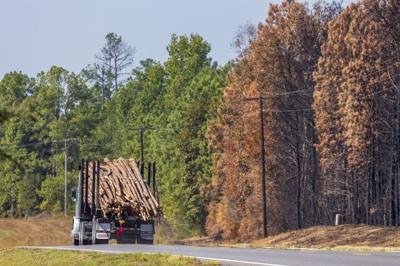Disasters along the Gulf Coast have a lot in common with disasters on the Pacific Coast of the United States these days.
Whether it’s storms or wildfires, though, one thing remains the same: the Federal Emergency Management Agency.
Yes, FEMA has come a long way since the hapless days of Hurricane Katrina and Michael Brown, or “Brownie,” President George W. Bush’s political appointee at the head of the agency. For one thing, even presidents are educable, and the backlash against Brown led future presidents to name more credible professionals in disaster management to head the agency.
But there’s a lot more to be learned, and two U.S. senators — from Louisiana and Hawaii, where a historic town on Maui burned to the ground during a wildfire, with heavy loss of life and property — want a more long-term look at the issues still facing this country’s people and landscape.
For Brian Schatz, who represents Hawaii, the Maui disaster showed that “much of this death and destruction is predictable and preventable, and we need to do everything we can to protect people and make our communities more resilient.”
That is why he teamed with Senate colleague Bill Cassidy, a Baton Rouge physician who knows personally how much hurricanes — and this year, also wildfires — can wreak havoc.
The bipartisan duo now proposes, along the general outlines of the National Transportation Board, a new disasters board to guide, and learn from, the tragedies that have become more common, not least in Louisiana where other major hurricanes have caused widespread destruction since Katrina and Rita in 2005.
There is, of course, no one solution to the manifold problems of natural disasters. In Louisiana, we’ve seen how warmer Gulf waters have over time allowed previously minor storms to ramp up into catastrophes almost overnight.
But the hard lessons of Katrina and Rita arguably have helped with disaster response, but recent events in both Hawaii and Louisiana have shown that there’s a great deal of learning yet to be done.
“A natural disaster safety board memorializes lessons learned from past storms to save lives and possibly prevent future disasters across the country,” Cassidy said.
We agree, and there are a number of thoughtful efforts to deal with the manifold disaster challenges. A team of experts at The Brookings Institution is publishing a series of reports on the "labyrinth" of agencies today attempting to implement the nation's disaster policies.
Former directors of FEMA are among the supporters of the Cassidy-Schatz legislation.
This board might not be the silver bullet, but from our perspective how much still has to be learned from too-slow and too-clumsy response and recovery is astounding.
And no one can argue that more efficient government help might be a real comfort when the next disaster strikes.


